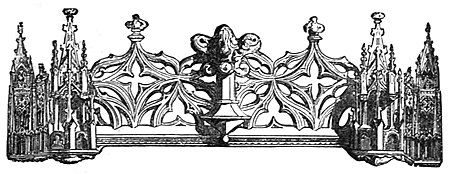
CHAPTER IV.
THE INCONVENIENCES OF FOLLOWING A PRETTY WOMAN
THROUGH THE STREETS IN THE EVENING.
Gringoire set out to follow the gypsy at all hazards. He had seen her, accompanied by her goat, take to the Rue de la Coutellerie; he took the Rue de la Coutellerie.
"Why not?" he said to himself.
Gringoire, a practical philosopher of the streets of Paris, had noticed that nothing is more propitious to revery than following a pretty woman without knowing whither she is going. There was in this voluntary abdication of his freewill, in this fancy submitting itself to another fancy, which suspects it not, a mixture of fantastic independence and blind obedience, something indescribable, intermediate between slavery and liberty, which pleased Gringore,—a spirit essentially compound, undecided, and complex, holding the extremities of all extremes, incessantly suspended between all human propensities, and neutralizing one by the other. He was fond of comparing himself to Mahomet's coffin, attracted in two different directions by two loadstones, and hesitating eternally between the heights and the depths, between the vault and the pavement, between fall and ascent, between zenith and nadir.
If Gringoire had lived in our day, what a fine middle course he would hold between classicism and romanticism!
But he was not sufficiently primitive to live three hundred years, and 'tis a pity. His absence is a void which is but too sensibly felt to-day.
75

